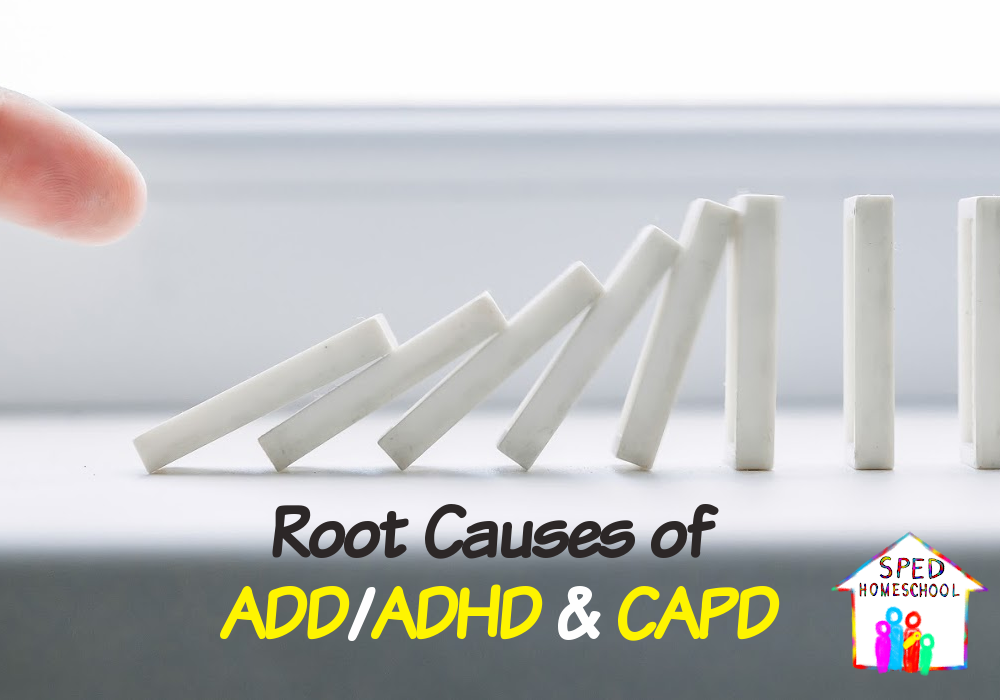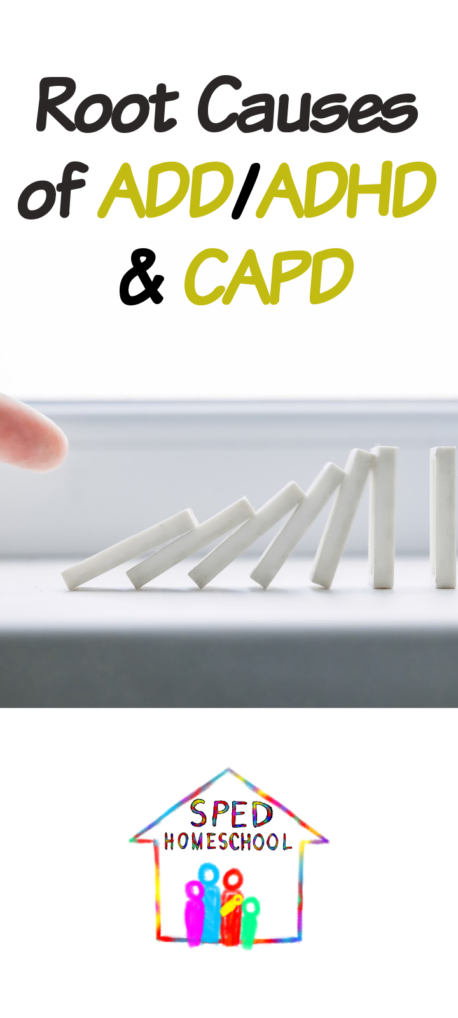
By Jan Bedell, PhD, Master Neurodevelopmentalist
A common question from homeschool families is, “What curriculum do you have for ______?” Fill in the blank with one of the myriad of labels that are prevalent today – dyslexia, ASD, ADD, ADHD, dysgraphia, all types of syndromes. The answer is that there really isn’t one. WAIT! Before you panic or throw up your hands, let me reassure you that there are solutions to your dilemma, but it is not found in a specific curriculum. To find the answer, you definitely have to think outside the box.
As a neurodevelopmentalist for 30 years, I can tell you that each situation is unique. Every child brings their own set of challenges to the situation and no two are exactly the same.
Let me give you a few examples of possible root causes of specific symptoms that need to be considered for the best way forward for the child.
If a child has trouble reading or is labeled dyslexic, a few of the root issues may be:
- Eyes not able to track well horizontally and/or vertically
- Eyes don’t place the image from one eye on top of the other to get a clear image to the brain- poor eye convergence.
- Auditory processing, auditory short-term memory, is low so holding all the phonics pieces together to get a word out is a challenge.
- Central vision is not developed well, causing skipping of words or lines
- The brain is not storing learned information correctly which causes inconsistent recall, one day they know the word and the next they don’t.
If a child has ADD/ADHD symptoms or labels, a few of the root issues may be:
- Hypersensitivity to sensory stimulation from visual, auditory, and or touch resulting in many of the symptoms on the checklists you find online or in a clinical setting, like distractibility to name one.
- Metabolic issues, chemistry of the body is causing poor behavior.
- Low auditory processing is a huge factor in these labels. Poor development in this area results in:
- Inability to stay on task
- Trouble following directions
- Difficulty seeing cause and effect
- Remembering to do chores
- Immature behavior
- Struggles with math word problems
- Slow, low or no use of phonics
- Challenges with following conversations
- Low reading comprehension
- More comfortable playing with younger children
- and many more
If a child has dysgraphia symptoms or labels, a few of the root issues may be:
- Poor proprioception, knowledge of where you are in space.
- Immature pathways from the brain to the fingers.
- Underdeveloped muscle tone causing inefficient hand strength.
- Weak central vision development causing:
- Inability to write on a line
- Large letters combined with small letters
- Inconsistent spacing of words
- Hands tire easily with writing
- Struggles to stay in the lines when coloring
These situations are frustrating for parents, teachers, and children. The good news is that the brain possesses an amazing, God given, ability to grow and change if there is the right kind of stimulation.
Each label or symptom within a label has a reason in the wiring of the brain that allows it to exist. More and more often, I see children with multiple labels. This just means that the brain inefficiencies are overlapping causing many symptoms in multiple categories. As stated previously, each child has a unique set of symptoms. There are, however, many combinations of symptoms that we see with different labels. When the root cause is addressed it brings relief in academic pursuits without the change of a curriculum.
Our job as educators, at any level from the home educator to the professional that is advising the family, is to look past the current functional ability- HELP MY CHILD CAN’T READ OR DO MATH!- to what may be causing academics to be less than desirable. Your first advice in this search is, “The full answer will not be found in any one curriculum.”
My challenge to you is to start the WHY search!
Why is the child distracted?
- Is it too much sensory stimulation? To find out and discover some solutions go to our YouTube Channel – Brain Coach Tips. Look for: It’s Not That Loud!; Hyper Vision; It’s Just a Sock!.
- Is it low auditory processing? To start your search watch- The New Label on the Block CAPD
There is much more to explore here on our channel, when looking for root causes. We are also here to help you if you want personal direction. Just set up a free consultation at Brain Sprints.com
May God richly bless you in your search for how to best help your child!
About Jan:
In 1992, a journey started that transitioned Jan from desperate home school mom of a struggling learner into a master neurodevelopmentalist.
With her new knowledge of brain optimization, coupled with experience as a public, private and home school teacher, she developed curriculum and training programs for parent and professionals.
The NeuroDevelopmental Approach gave her hope for her daughter and now Dr. Jan aka Brain Coach™ dedicates her time to helping children, teens and adults reach their fullest God-given potential whether they are gifted, typical or challenged.



